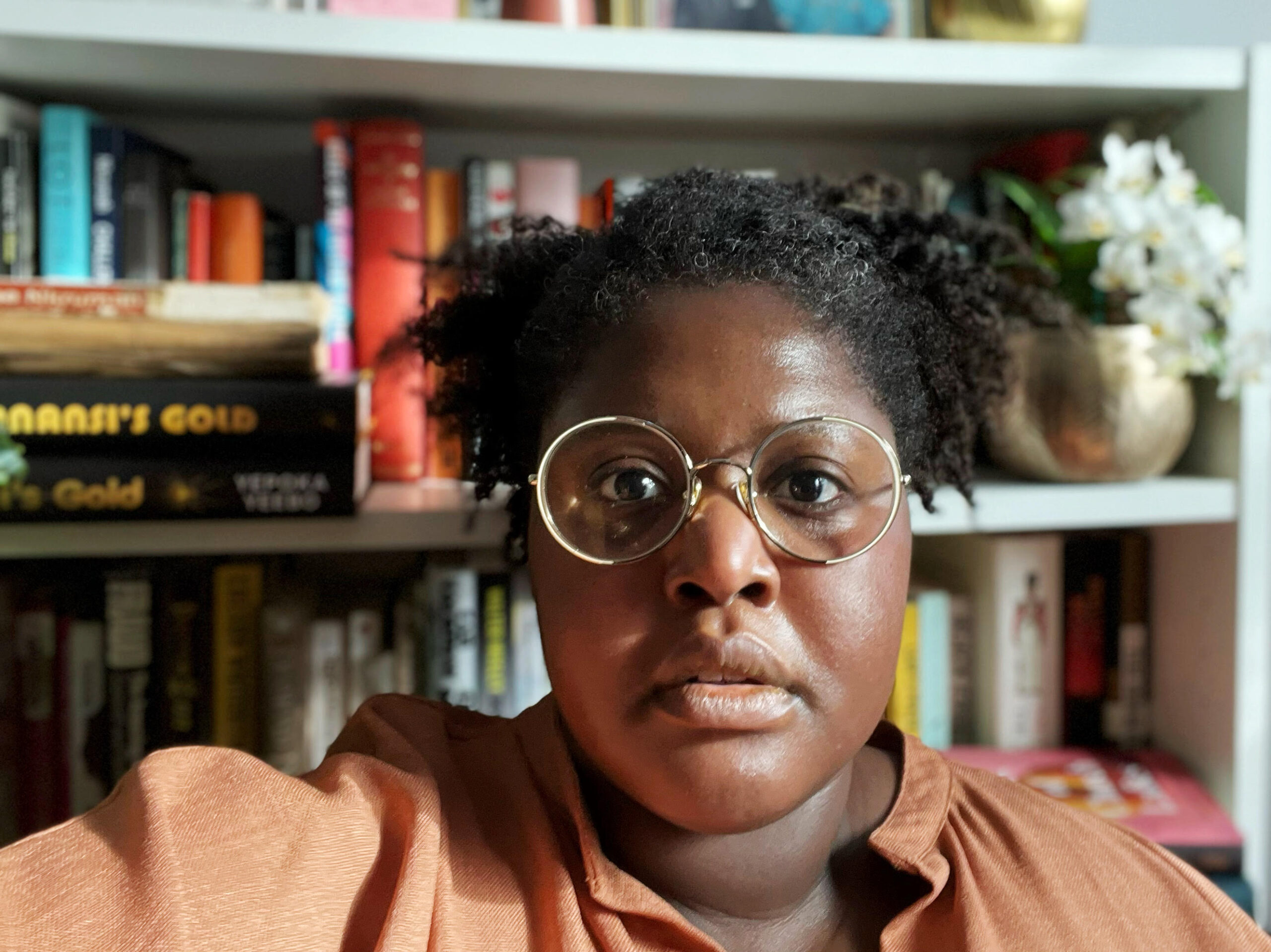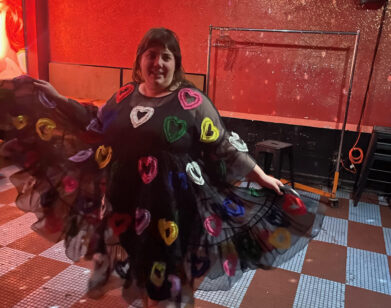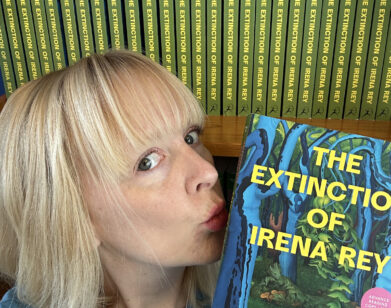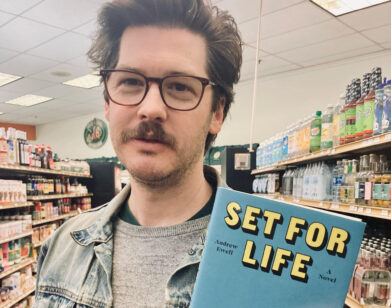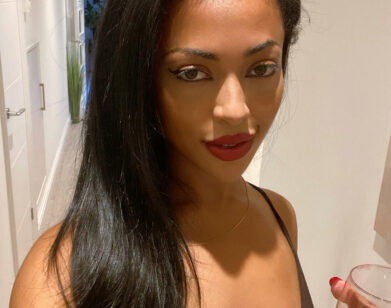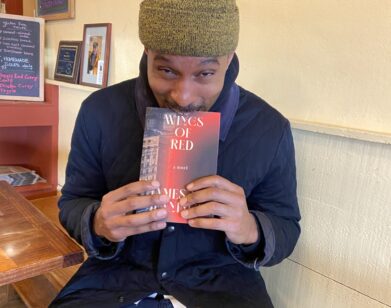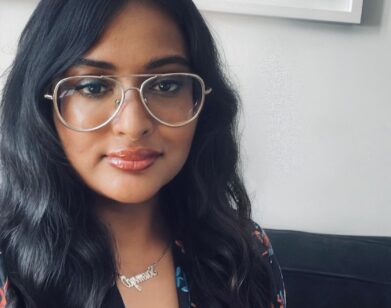open book
Yepoka Yeebo on Her Favorite Bookstores and Literary Con Artists
This is OPEN BOOK, a monthly column in which we ask debut authors about their reading and writing habits. Last month, we spoke with Ruth Madievsky, whose novel All-Night Pharmacy follows two sisters as they navigate Los Angeles’ nightlife scene, patronizing seedy clubs and rubbing shoulders with the sleaziest characters imaginable. For this month’s installment, we spoke to Yepoka Yeebo, whose new book Anansi’s Gold tells the story of John Ackah Blay-Miezah, a Ghanaian con-man whose decades-long scheme entrapped a shocking array of prominent individuals. Anansi’s Gold is a biography of Blay-Miezah, but it’s also an indictment of Western greed—many of those he defrauded were Americans and Europeans hoping to enrich themselves by exploiting the instability of a newly-independent Ghana. Just before her book hit shelves, Yeebo took the time to answer our questionnaire, telling us about her favorite bookstores in London (Foyle’s, “a weird and lovely warren of a place”) and the Max series she watches for inspiration.
———
Where do you like to write?
Wait a minute. That’s a really hard question. Either the furthest from home I can manage, in a completely new place that is somehow connected to what I am writing about. (In Philadelphia, it was Uncle Bobbie’s Coffee and Books. It helped that everyone there was warm and kind and very cool, and was working on fascinating stuff of their own.) Or my desk at home, which looks southwest over London, from Regent’s Park and the American ambassador’s residence all the way to Trellick Tower in Westbourne Grove. Though mostly I just watch people on the street below, and take in the color of the sky. The desk is always messy, because there are plant propagations and random fidget toys and way too many pens everywhere. Because I like pens, and you can never have too many pens. The most important thing on my desk is a double frame, with pictures of my grandmother and my grandfather from the late 1950s. My grandmother is tuning a radio, which is kind of perfect because she was always singing along to the radio. My grandfather is about to ride a bike, wearing a double-breasted suit and a tie pin. His shoes are immaculate, which is also kind of perfect, because his shoes were always immaculate, and if I went to see him with dust on my shoes, he would insist that they be polished. All the places I like to write have two things in common: there is access to tea, and to entertainment for me.
When do you like to write?
Whenever my brain pleases. I don’t feel like I get to choose when. My brain chooses when, and I get dragged along with that. It helps when it is really early or really late.
What led you to the story of John Ackah Blay-Miezah?
My mother, who is a very serious person, first told me about Blay-Miezah. She sent me a clip of him being interviewed on “60 Minutes” by Ed Bradley. It had been going around in Ghana because it was an election year, and people were talking about parties which had been thrown off the ballot for irregularities in the past—and one of the most famous precedents was Blay-Miezah’s attempt to run for President in 1979. I got really fascinated because every time I mentioned this to someone, they would have a story: about money which was put away and could not be retrieved, or money that was stolen in massive quantities by politicians, or money that had successfully been retrieved. When I saw the clip, I thought it was obviously nonsense. But people kept saying he could be telling the truth. And that made me want to know how this happened. Everyone also had the wildest stories, which, I thought at the time, had to be apocryphal: that Blay-Miezah smuggled goods all over the world, that he invented a football chant which was still used today, that he used historical relics to move drugs. So I guess you could say that WhatsApp and corruption led me to Blay-Miezah.
Name your favorite literary con artists, real or fictional:
That’s hard. Favorite because they were good, favorite because they were bad, favorite because they were evil? But it has to be Doris Payne, a.k.a. Diamond Doris. She was a jewel thief. She had a decades-long career. And she was excellent at walking in, dazzling people, and walking out dripping in jewels. She was super audacious about it And she knew a huge amount about jewelry and jewels. It was just a very enjoyable series of crimes.
What’s the first thing you did after you turned in a draft of your book?
The draft was laid out chapter by chapter over my study floor. I had a drink, stepped over the pages—trying not to slip—and went to sleep. I mostly remember being very tired and very confused.
Tell us about three to five books you read while writing your own, and why?
There’s almost no good way to narrow this down, but I read a bunch of Walter Mosely, because I wanted to get as close as possible to an outrageous crime novel in my own work. And also distract myself. Nafissa Thompson-Spires, Heads of the Colored People, for the ways in which so many intersecting stories build up to a world. I know it’s not a book, but it absolutely helped: the Comedy Central/HBO Max series South Side. It’s this great big world full of complex characters and stories, which weave through and around each other. The writing is incredibly dense, but with the lightest of touches: I could rewatch it ten times and pick up new things. And Saidiya Hartman’s Wayward Lives, Beautiful Experiments. It was so good at taking sources, however dry or challenging, and weaving them into a narrative. James Barnor’s Ever Young and Accra/London: A Retrospective—I loved being able to see the people I was researching and writing about, and the way Ghana changed during the period I was researching. It added so much texture and color. It always helps to be able to see things, especially if they are things from the past.
Tell us about a formative early reading experience.
I read so many things. I spent absurd amounts of time in the library at school. I don’t remember a time when I wasn’t reading all the time. I would walk to and from the bus stop and school, while reading, and somehow I never walked into anything. I would stuff multiple paperbacks into the pockets of my blazer. It kind of blurs together. I read a lot of Enid Blyton—it wasn’t really formative, but in my head, all the characters were Black.
The last book you loved, and why?
That’s hard. But it has to be Peace Medie’s His Only Wife. I loved, loved, loved that from the very first page, there was an intense amount of drama, but it was also so vividly rooted in Ghana. I felt like I knew all the characters, because I know people exactly like all of them. It was freaky. And I love mess. I love drama. And it is rare to read a book about Ghana that sounds like Ghana: nothing was overly explained, or adjusted, and it did a really good job in showing how wives can be circumscribed by tradition, and men, and powerful people, and family. But it also did an awesome job showing how people get out, and are resilient. I’m really looking forward to reading Nightbloom, Peace Medie’s latest.
The last book that disappointed you, and why?
That’s even harder, because I can’t be too salty. There are many.
Hardcover or paperback? Why?
I don’t really care how it arrives, as long as it arrives. I have a slight preference for hardcover with older or rarer books, because they are less likely to crumble. But the very act of successfully tracking down a book that I’ve been interested in is the main thing for me: as long as I can read it when it arrives, that’s enough.
A book you think should be in the canon, but isn’t:
The world is entirely too big and entirely too full of incredible writers for the idea of a singular canon to be credible. And the days where everyone is funneled towards the same twelve boarding schools in England are over. Not over enough, but still over. Some of the most remarkable things I have read have been chapbooks or zines: everyone should read everything they can, all the time, because there are wonderful things coming from literally everywhere. Not just writing, but ideas and worlds.
A book you think shouldn’t be in the canon, but is:
I had to read and study so many things. I feel like they should maybe leave the corpse of Wilfred Owen alone. They actively reanimate him all the time in Britain, and it’s getting creepy. There are plenty of works in the canon which I don’t so much actively hate as simply not care about. Having said that, if I had to pick one: Hemingway.
What’s your favorite bookstore(s)?
That’s really hard. I love bookstores—how do you pick a favourite? Uncle Bobbie’s Coffee and Books in Philadelphia. The Legon University bookshop in Accra. Harriet’s in Philadelphia: every time I went there, there was something incredible on the display, and
something remarkable going on. The old Foyle’s in London used to be such a weird and lovely warren of a place, and some of my earliest memories are from running around its cramped shelves. It was chaotic, and haphazard, and beautiful, and I miss it very much.
What do you look for in a reading experience?
I want to get carried away. Pretty much immediately, I want to be immersed in a world, and not want to leave. I want to feel like I’m learning or understanding the world differently. I want to be angry at the characters, or the author, for the decisions they made or the things they found, but I also want to be in awe. You know what it’s like when you’re trying to find an old book—you aren’t sure what’s going to be in it, but it feels like it might be important? Then you finally get your hands on this battered, ratty old volume, and to begin with it’s exciting, because it was a treasure-hunt, and it feels like a miracle that you’re holding it in your hands. Then you open it up, and it’s better than you hoped. It’s way more than you thought it would be. I want that with every book. I want every book to feel like a gift. Also just don’t want to be bored. Please don’t bore me, especially if it’s about something interesting.
How do you arrange your bookshelf?
Are you serious? Haphazardly. Poorly. By chance. In stacks. In strata. Oh my god. Are people really running the Dewey Decimal System in their homes? My books are not arranged. Many of them are not shelved. Many of them are in suitcases or in boxes
somewhere on three continents. I don’t know what’s in those things. I don’t know where I left them. There are definitely some in my mum’s shed. I know it’s not a joke, but I want it to be.

